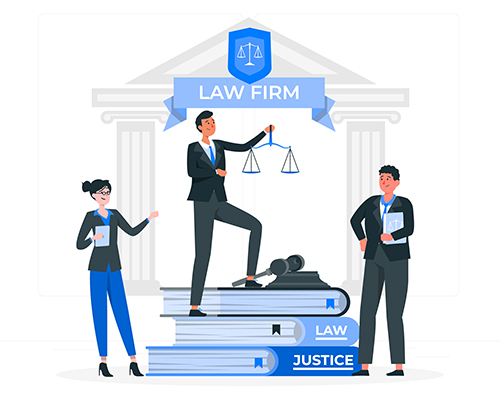Dispute Resolution
Practice Areas
- Home
- Practice Areas
- Dispute Resolution
Dispute Resolution
Dispute resolution laws offer structured mechanisms for individuals, businesses, and entities to resolve conflicts without resorting to costly and time-consuming litigation. These legal pathways, which include arbitration, mediation, and conciliation, prioritize amicable settlements and the equitable resolution of disputes. By providing alternatives to traditional court proceedings, dispute resolution laws facilitate faster, often more cost-effective, and sometimes more amenable outcomes for conflicting parties.
Know Your Rights
Dispute resolution laws offer structured pathways to resolve conflicts without resorting to extensive litigation. Know your rights to mediation, arbitration, or other alternative resolution methods.
Having a clear understanding of your options can not only save time and resources but also lead to more amicable outcomes. Ensure you approach conflicts with a knowledge of the legal tools at your disposal.
The Power of Mediation
Mediation offers a neutral ground for parties to come together and find common solutions. Understand the rights and procedures to make the most of this alternative dispute resolution method.
Benefits of Arbitration
Arbitration provides a more streamlined way to resolve disputes without the need for court trials. Recognizing its framework can help parties navigate and reach binding decisions efficiently.
Understanding Litigation Rights
When disputes advance to courts, knowing the rights, procedures, and possible outcomes is essential for both plaintiffs and defendants to ensure fair hearings and justice.
Settlement Agreements & Their Legality
Settlements can provide amicable resolutions without further legal action. Grasping their legal implications helps parties come to terms that are both satisfactory and binding.
Dispute Resolution International
- International Centre for Dispute Resolution (ICDR)
- World Trade Organization - Dispute Settlement
- United Nations Commission on International Trade Law - Dispute Settlement
- Permanent Court of Arbitration (PCA)
Dispute Resolution Organizations
- International Mediation Institute (IMI)
- Chartered Institute of Arbitrators (CIArb)
- Conflict Resolution Network (CRN)
- International Institute for Conflict Prevention & Resolution (CPR)



